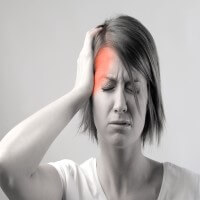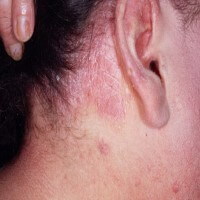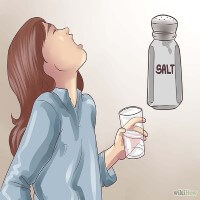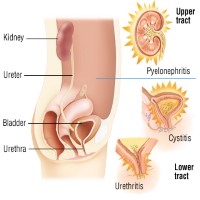Gastritis
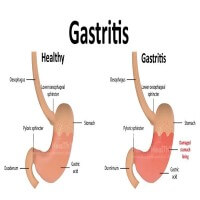
Gastritis is inflammation of the lining of the stomach. It can be caused by a bacterial infection that usually causes peptic ulcers, or overuse of pain relievers, or excessive use of alcohol or even autoimmune disorders. It is characterized by a burning ache in the stomach, which gets either better or worse with eating. The stomach acids can also cause damage to the lining of the stomach. The treatment of gastritis depends on the cause of gastritis and the main line of treatment is to kill bacterial infection, neutralize stomach acids, medication to reduce acid production, and for healing.
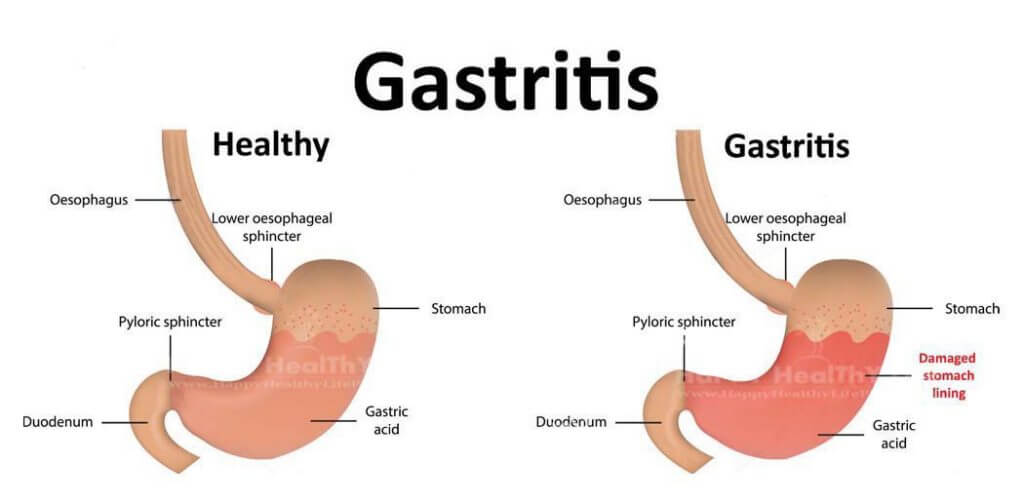
Ayurvedic Description Of Gastritis
In Ayurveda, the condition of gastritis is compared to Urdhavaga amlapitta, which is caused due to the vitiation of Pitta dosha. The weakening of digestive fire (Agnimandya), Heart & chest burn (retrosternal burning), and nausea are the 3 main initial symptoms of Amlapitta.
Signs & Symptoms
- Gnawing or burning pain
- Indigestion
- Heaviness in upper abdomen
- Nausea
- Vomiting
Causes and Risk Factors
1. Bacterial infection
Although infection with Helicobacter pylori is among the most common worldwide human infections, only some people who are infected develop gastritis or a similar stomach disorder.
2. Tobacco use
Smoking or chewing tobacco leads to the generation of excessive Pitta in the body, which eventually causes Amalpitta or Gastritis.
3. Injudicious use of pain relievers
Long-term use of common pain relievers such as aspirin, ibuprofen and naproxen can cause both acute gastritis and chronic gastritis. These drugs damage the protective lining of the stomach.
4. Alcohol use
Alcohol can irritate the stomach lining, which makes the stomach more likely to be harmed by the digestive juices, excessive alcohol use is more likely to cause acute gastritis as according to Ayurveda, alcohol itself is an acid (Amal).
5. Stress
Severe stress due to any of the reasons like major surgery, injury, burns or severe infections can cause acute gastritis.
6. Autoimmune condition
When the body starts attacking the cells that make up the stomach lining. This produces a reaction by the immune system that can wear away at the stomach’s protective barrier. Autoimmune gastritis is more common in people with other autoimmune disorders, including Hashimoto’s disease and type 1 diabetes.
7. Other conditions
Gastritis may be associated with other medical conditions, including HIV/AIDS, Crohn’s disease and parasitic infections etc. and needs to be investigated while dealing with the cases of chronic gastritis.
Self Care Tips
- Know your medications, as you need to avoid medications that end up irritating your stomach. Ask your physician to prescribe the tablets in enteric form.
- Avoid spicy, fatty, and fried foods that may trigger gastritis. So, cut or eliminate them from the diet to get rid of gastritis.
- Eat frequent, small meals as this helps in reducing any excessive acid in the stomach.
- Quit smoking, reduce or eliminate alcohol intake, as these are the two common causes of acute and chronic gastritis.
- Try to minimize stress levels by eliminating the cause of stress, meditate over it and relieve it.
- Drink 2 to 3 glasses of lukewarm water empty stomach and do not go for milk tea in the morning after waking up.
- Chew fresh peppermint leaves or add them to the soups, salads, and smoothies.
- It is very much advisable to include raw fruits, vegetables, khichdi as regular meals since they have a healthy impact on gastric mucosa, thereby decreasing the excessive acid in the stomach.
The Ayurvedic treatment of gastritis or Amalpitta is focused on treating the root cause of acid formation or the conditions, which cause the excessive acid formation. This mainly includes Shodhan Chikitsa with Virechan and detoxification of the body to get rid of excessive Pitta in the body.

